Medical Inventory Management software keeps track of your hospital’s medical supplies. Pharmaceuticals and surgical supplies, as well as items for outpatients and the gift shop, are kept track of by inventory systems. While broad Medical Inventory Management is available, healthcare establishments require customised software. Unlike a regular brick-and-mortar business, which must manage Medical Inventory Management such as clothing or food, the healthcare industry must deal with regulated medications and delicate medical gadgets.
Medical Inventory Management software keeps track of all of your industry-specific supplies so you can focus on treating patients and providing the best possible care. Medical equipment and supplies, patient prescriptions, and other health and wellness products are among the items that hospitals and major healthcare organisations are responsible for maintaining inventory.
15 Best Medical Inventory Management Software in 2023
Even though many hospitals have medical Inventory Management in place, more than half of the facilities that were checked were doing it by hand using simple Excel sheets. Unfortunately, supply chain expenses are expected to be the greatest for healthcare systems this year, exceeding labour costs for the first time.
What is the main goal of inventory management?
Hospitals and health systems may save 17.7%, or $11 million per site annually, by establishing a targeted and optimised supply chain strategy using healthcare inventory management
software for hospitals software. So, health systems should make it a top priority to find a platform that can help with inventory management workflows. This will help them save money, time, and effort while managing their inventory more efficiently. Healthie provides full inventory management and client care solution. Click here to create a free starter account right now.
What is inventory management in healthcare?
Healthcare Medical Inventory Management, also known as supply chain management (SCM), is a workflow that keeps track of your health system’s inventory, purchases, orders, and payments, among other things. An inventory management system is essential for healthcare firms that need to monitor medical supplies, order and administer prescriptions, or sell health items to patients. Inventory management solutions for big businesses help safeguard your firm from both monetary and product losses by maintaining an up-to-date and accurate log of items and supplies.
What are the different kinds of inventory management?
Healthcare Medical Inventory Management is implemented in two ways. Perpetual inventory is the first type. Continuous inventory systems keep track of any additions, subtractions, purchases, and deliveries by updating the inventory data on a regular basis. Perpetual inventory systems, when correctly managed, are an effective and accurate way to track inventory for your healthcare system.
On the other hand, perpetual Medical Inventory Management cost more and takes longer to set up because they need specialised software that works automatically, which is especially important for businesses with more than one location. Periodic inventory is the other basic form of healthcare inventory management
software for hospitals system. Periodic inventory systems do not update automatically or on a daily basis; instead, manual inventory must be done at the beginning and end of each period (i.e., each week).
After the inventory has been taken by staff, the system can be updated with new information about the stock. Taking inventory on a regular basis takes a long time and offers more possibilities for error than when it is done automatically. Smaller companies and healthcare groups benefit the most from this form of inventory. Healthie’s platform features various membership levels to cater to your business needs, whether you’re a solo practitioner or part of a multi-provider group or organisation.
Features of Medical Inventory Software
- Inventory valuation: To offer profitability and tax information, it determines the cost value of individual inventory using FIFO/LIFO and other parameters.
- Keeping track of stock counts Based on SKU or other tracking variables, it records all on-hand units of items.
- Traceability of medications: For quality control and product recalls, you can keep track of medicine by lot, barcode, RFID, or serial number. You can also get alerts when a batch of medicine is about to expire.
- Tracking of purchase orders: Keep track of new and repeat orders for medical supplies.
- Management of reporting and audits: Receipt of sales, purchase orders, and revenue data; reconciliation of inventory records with actual item stock counts to identify inconsistencies and avoid loss.
- Management of inventory holds: Have a current supply on hand to meet client orders. When things are out of stock, avoid placing multiple orders. Set up automated notifications for out-of-stock and low stock situations; specify the stock count level to notify when it’s time to replenish items.
Medical Inventory’s Key Advantages
Using a medical inventory system has various advantages for your healthcare facility:
Product inventory precision
In a bustling environment like a healthcare facility, manually maintaining inventory is extremely tough. However, you’ll need a technique to make sure you have enough medication, surgical supplies, and other medical supplies. Any errors you or your employees make might result in shortages. By avoiding human mistakes, upgrading from spreadsheets to automated medical inventory software can save time. Human error, which frequently leads to missed medication and product shortages, may be reduced by adopting an inventory system. From any mobile device with a digital record, you can also get real-time information on drug use and supply.
Manage FIFO/LIFO, expiration dates, and recalls.
When medical items expire, you must quickly remove them from your inventory. Expired medications may not work as well as they should and may cause extra health issues for your patients. Set automated alerts for when prescriptions expire to streamline your product disposal procedure. If medicine is recalled, traceability modules might help you plan how to collect and get rid of it. The Food and Drug Administration (FDA) makes rules about how to handle and get rid of bad or dangerous medicines. Automatically update your stock to reflect the new counts and figure out which prescriptions are safe alternatives once the drug has been safely removed.
Budget Management
Drugs are quite expensive. Changes in patent status can cause medicine prices to fluctuate dramatically. With inventory costing software, you can adapt to price hikes and cutbacks in your budget. If a drug is too expensive to buy on a daily basis, you might start exploring cheaper generics to save money.
Compliance with Controlled Substances
Many drugs are classified as “restricted substances” and are only available with a prescription. You must, however, have these medications on hand for your patients. How do you keep these drugs safe? The first step is to always keep precise counts. Next, figure out who has permission to use particular medications and who has a current prescription.
What Medical Facilities Can Benefit from Medical Inventory Systems?
- Hospitals: Managing medical stock is a job for many different departments in large medical facilities like hospitals. They may handle anything from surgical supplies to medical gadgets, in addition to medications. There may also be a pharmacy located within the hospital.
- Independent pharmacies and pharmacies that are part of bigger retail chains can both benefit from medical inventory solutions. Pharmacies may stock both over-the-counter and prescription pharmaceuticals.
- Clinics and private practises: Private clinics offer a wide range of services. Medical inventory software may be tailored to handle your highly specialised items and services.
- Hospice, memory care, and assisted living facilities are all options. Patients’ medicine, food, and toiletry must be managed by end-of-life centres. Institutions that offer live-in care, like hospice, must give their patients both medically and everyday items.
Patient Prescriptions and HIPAA Compliance
To protect patient information, medical facilities are converting to electronic health records (EHR). Doctors and nurses may update patient prescriptions online using this digital method. HIPAA requirements are not taken into consideration by general inventory management
software for hospital systems. Use HIPAA-compliant medical inventory software to keep track of what your institution uses with each patient. This will help you stay in line with the law.
Medical Inventory Management Issues Are Common
With the right software, there are a number of problems with managing medical inventory that can be fixed:
During Emergencies, Product Shortages
During a worldwide epidemic, the last thing you want to deal with is a lack of basic supplies at your hospital. Medical inventory software puts all of your patient and drug information in easy-to-find places so that you don’t run out of anything. Find out which pharmaceuticals are soon to run out and place your orders before the rest of the world.
Medical inventory software is helpful because it can keep track of more than just medicines. It can also keep track of things like gloves, wipes, face masks, and other emergency supplies that are used up quickly. Set up automatic replenishment levels to let your team know when goods are running low so they can restock before they run out.
Controlled Substance Theft
Ordinary stores that lose track of pharmaceuticals may face penalties and citations for breaking restricted substance rules, but ordinary stores just have to worry about revenue loss from stealing. The FDA has taken more steps to protect the integrity of the supply chain for medicines and stop contamination, tampering, and theft. A medical inventory management system puts you in compliance with FDA requirements and in control of hazardous chemicals. You’ll be able to keep track of which medications are in stock and which have been dispensed with precision.
Bringing Medical Supplies and General Products Together
Many pharmacies collaborate with merchants to provide consumers with all of their medical needs in one convenient location. Even hospitals have cafeterias and gift stores. A single inventory management
software for hospital system might not be enough to keep track of all the different parts of your regular stock and your medical stock.
You might, for instance, work with medical devices like pacemakers and heart valves that have to follow strict rules for tracking production. You’ll need to keep track of which goods are still in your inventory if your gadget fails. Otherwise, the patient may develop a faulty heart valve. While basic inventory management software can give some traceability for expired food and beverages, it isn’t built for the precise tracking of medical equipment and regulated chemicals.
1. ArbiMed Medical
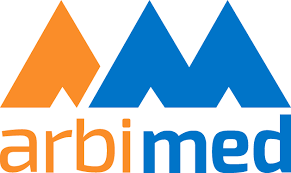
ArbiMed Medical is an inventory management
software for hospitals system tailored to the healthcare business. Technology has completely changed the medical field. Now, clinics can check in on patients, keep an eye on their electronic health records, and do much more.
2. Bellwether Purchasing and Inventory
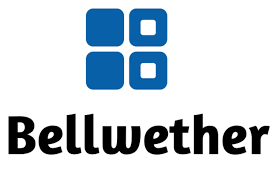
Bellwether Purchasing and Inventory Software is a paperless procurement solution that works from start to finish and is fully integrated. There are also Express and SQL versions available. To run PMX’s SQL version, you’ll need Microsoft SQL Server 7.0 or above.
3. ENVI
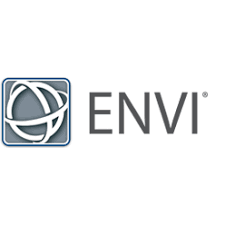
ENVI is a healthcare inventory optimization software solution. The array of capabilities, which includes the ability to interact with a greater number of financial and clinical systems than ever before, represents a new milestone in the IOS goal to provide you…
4. MedSupply Software
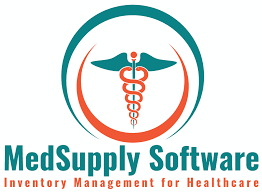
MedSupply is a user-friendly, feature-rich, and scalable programme that makes managing medical inventory a snap for any manager. Unlike generic inventory software, MedSupply is tailored to all types and sizes of businesses.
5. eTurns TrackStock
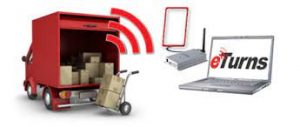
ETurns TrackStock is a cloud-based inventory software that automatically restocks based on demand and gives stockrooms far away from real-time visibility into inventory. eTurns TrackStock employs barcode scanners, cellphones, IoT weight sensors, and RFID to track inventory.
6. Acctivate
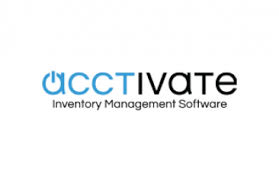
Acctivate is an inventory management software developed for expanding distributors, manufacturers, and online merchants who use QuickBooks. Acctivate has a wide range of features and add-ons, providing businesses with a lot of options.
7. SurgiCare Inventory
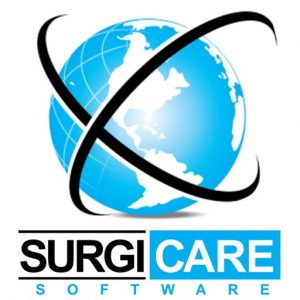
SurgiCare is a sophisticated inventory management software for healthcare and medical professionals. This cloud-based system was created exclusively for hospitals, surgery centres, and other medical organisations’ complicated material management needs.
8. Surgi-Sys
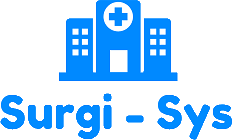
Surgi-Sys is a sophisticated medical inventory management software. This product was created in collaboration with healthcare industry clients. As a consequence, you’ll have a system that’s simple to use while yet being robust enough to provide real-time insights into your
9. WebOps Logistics
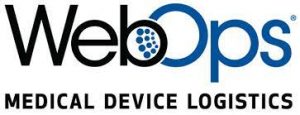
Medical device management, inventory control, and optimization are all provided by WebOps Logistics. This platform is a SAAS solution for precise tracking and ordering of a wide range of medical equipment used by
10. AdminiCare
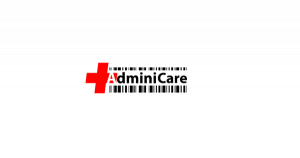
AdminiCare is a web-based medical inventory management solution for healthcare created by inBeam Technologies. Thanks to the software, medical institutions may have total control over the goods, formularies, and costs for each resident. Make it automatic.
11. Hybrent
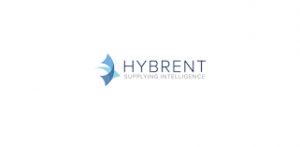
Hybrent is a healthcare-specific medical procurement, supply chain, and inventory management system. The goal of healthcare supply chain management software was to provide a low-cost, cloud-based way to buy supplies and keep track of inventory.
12. HealthLine
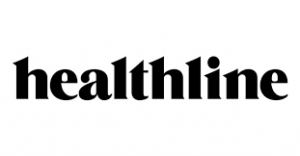
HealthLine is an established leader in medical inventory and supply chain management for the healthcare industry and is now part of Medsphere. From the stockroom to the hospital boardroom, this software makes inventory management easier, more reliable, and easier to use.
13. Liberty Software

Liberty Software is a pharmacy management system that can help you improve customer service, keep patients safe, and make more money. Liberty Software has three solutions: overall pharmacy management, point of sale, and multi-store management.
14. Sowingo

Sowingo is a medical and dental office buying and inventory management software. You can save time, and money, and never run out of supplies or inventory with this cloud-based eCommerce system! Get real-time data and low-level warnings on…
15. Sortly

Sortly is an inventory management tool that allows you to focus on your company rather than inventory. With this easy-to-use software, you can keep track of all the little things by keeping track of your organization’s inventory. Use barcodes and QR codes to keep track.










Add Comment